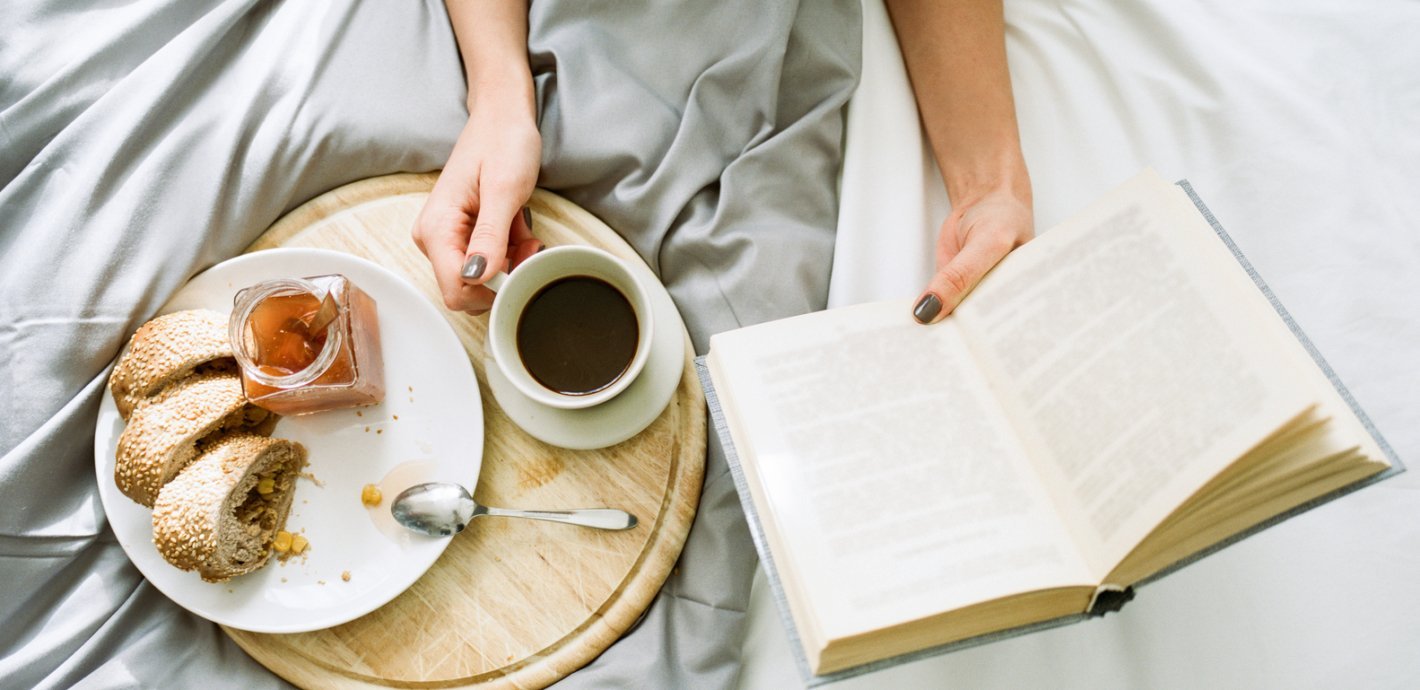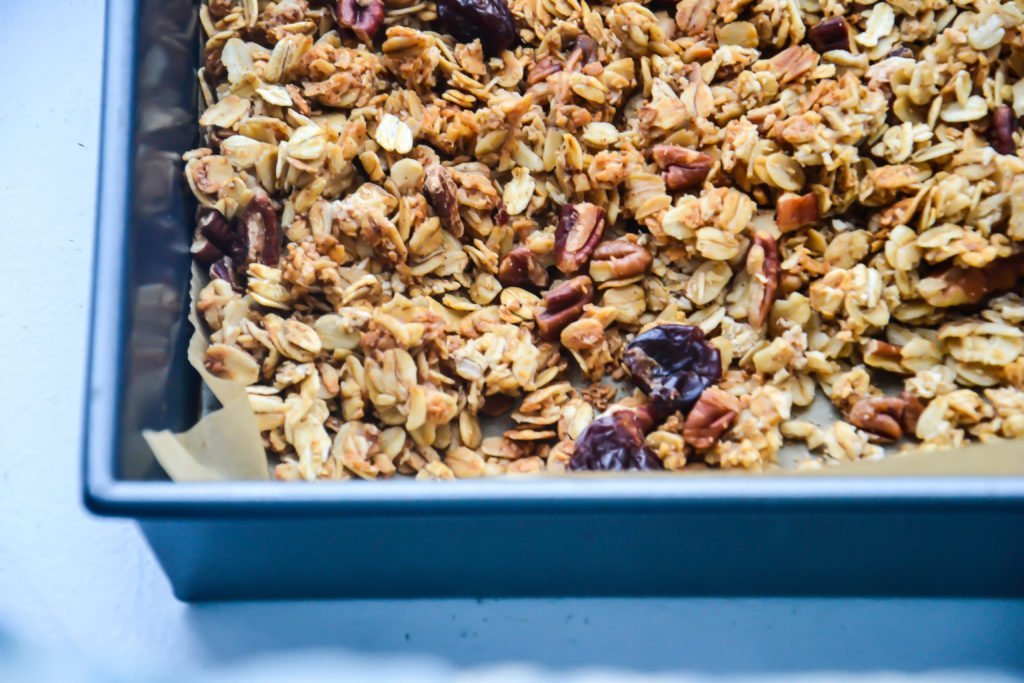Ever have one of those mornings? For me, it’s usually Tuesday instead of Monday. Sleepiness slaps me in the face and I’m slower to get up, slower to get moving, and slower to get out the door. Somewhere between the foggy-minded teeth brushing and making sure my shirt’s right-side-out, I always used to forget to eat breakfast. Key words: used to. I’m not forgetting anymore. Now, I actually skip it on purpose.
This practice, known as intermittent fasting, is revolutionary compared to traditional nutrition advice. I mean, everybody knows that breakfast is the most important meal of the day. But then I found this strange, new, contrarian strategy. Could skipping breakfast really work? I had to find out, so I gave fasting a try. Turns out it works.
In fact, it worked even better than I imagined—first for me, then for client after client. Apparently, it’s okay to skip breakfast. The more coaching clients I saw doing well without the most important meal of the day, the less important that meal seemed. So I dove into the evidence to see how vital this A.M meal really is.
How Breakfast Became “Most Important”
No matter the meal, everything we eat matters. But breakfast is different, right? After all, we’ve heard it’s the “most important” all our lives. And it didn’t receive the moniker as a result of tradition or grandmotherly wisdom. It’s science.
Studies show links between better health, improved fitness, and eating breakfast. Often referenced, this study by the National Weight Control Registry in 2002 examined breakfast habits of nearly 3,000 people who had lost at least 30 pounds and kept it off for at least one year. Researchers found that “eating breakfast is a characteristic common to successful weight loss,” suggesting that breakfast is a factor in that success.
A more recent study, published in the journal Circulation by the American Heart Association last January, looked at the effects of different eating styles on obesity, lipid profile, insulin resistance, and blood pressure and confirmed consistency is king. The data suggests “irregular eating patterns appear less favorable for achieving a healthy cardiometabolic profile.”
In other words, research supports that people who eat breakfast tend to be healthier and more fit than people who don’t. The first meal of the day appears to have a role in everything from maintaining general health to losing those pesky five pounds once and for all. Improved health and fitness? No wonder it has received such clout. However, there’s a problem with these studies.
Correlation, Causation, and Clarifying the Data
Correlation isn’t causation. Sometimes, correlation isn’t even connection. Things can be correlated and completely unrelated. For example, divorce rates in Maine and margarine consumption are correlated. But there’s no causation. There isn’t even connection. And yet, we see a strong statistical correlation.
That’s the problem. Several variables, including those we can’t see, affect outcomes. So yes, eating breakfast could be positively linked to health and fitness. But it could also just be a healthy happenstance. In fact, several studies suggest breakfast’s observed connection to health and fitness is just that—coincidental.
Related: The Best New Science for Weight Loss in 2018
One study published in the American Journal of Clinical Nutrition in 2016 found no differences in weight loss between groups who ate or skipped breakfast. Another, published in the same journal in 2014, concludes that “a recommendation to eat or skip breakfast […] had no discernible effect on weight loss.” And a 2017 study published in Nutrients finds no significant differences between eating breakfast and fasting to improve body weight, dietary quality, nutrient intake, and metabolic parameters.
But wait. If there is zero a difference between eating and not eating breakfast, does it matter at all? Well, yes. Just not the way you might have thought.
The Final Verdict
Breakfast is important, but not more so than lunch, dinner, and everything else you eat daily. It all matters. Because at the end of the day, the most important thing is calorie consumption. And everything you eat affects caloric intake. Calories are calories, and if you’re trying to improve your health and fitness, they are what matter most.
Eating breakfast and skipping breakfast are both effective. Fasting works well for me and it works well for several people who I coach, but that doesn’t mean it’s going to work best for you. In fitness, everything can work. The trick is finding what’s right for you. That’s where the magic happens, no matter when you eat breakfast.
If you wake up hungry and want food, eat. And by all means, enjoy it! Maybe try this easy, grab-and-go granola recipe from Sonima’s new resident chef, Amie Valpone. But if eating in the morning feels like a chore, it’s perfectly okay to skip breakfast. You’ll get better results doing whichever works best for you.
Healthy Cherry Granola
Ingredients
2 cups rolled oats (gluten-free, if desired)
1 cup pecans, chopped (or any nuts/seeds)
¼ teaspoon ground cinnamon
2 tablespoon coconut oil, melted
2 tablespoon pure maple syrup
1 teaspoon pure vanilla extract
¼ teaspoon sea salt
2 tablespoon coconut flakes, unsweetened
½ cup dried cherries
Directions
1. Preheat the oven to 350 degrees F. Prepare a large rimmed baking sheet with parchment paper and set aside.
2. In a large bowl, combine all the ingredients except the cherries and mix well to combine. Transfer the granola to the prepared baking sheet and bake for 15-17 minutes or until golden brown. Remove from the oven and set aside to cool for 5-10 minutes. The granola will start to get crispy. Add the dried cherries and serve.
3. Store in a sealed container for up to 5 days at room temperature.
Yield
3 ½ cups
Photography by Amie Valpone









Comments (0)